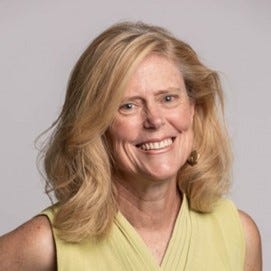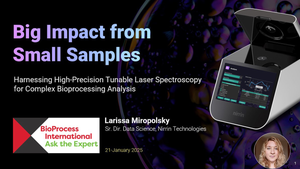
Novo Nordisk Foundation will invest up to $343 million over a ten-year period to establish an international research center focused on stem cell medicine.
The center is a partnership entitled reNEW between the University of Copenhagen, Denmark, Murdoch Children’s Research Institute, Australia, and Leiden University Medical Center, The Netherlands.
The aim of the collaboration is to drive future stem cell-based treatments. The governing hub will be based at the Faculty of Health and Medical Sciences, University of Copenhagen and Melissa Little from the Murdoch Children’s Research Institute will serve as the CEO of the reNEW partnership, as well as being appointed executive director and professor of the center.

Image: Melissa Little, CEO of reNEW
“reNEW builds international critical mass, expands the horizons and facilities available to all sites and enables the creation of international teams working towards targeted outcomes,” Little told us.
She continued: “Stem cell biology has come of age. The challenge now is to apply this understanding to outcomes that will benefit society whilst supporting these on research excellence.”
Experts across the three institutions will work together to develop therapeutic options for patients with incurable diseases. According to the organization, the combination of exchange programs and joint technology platforms in the reNEW model will drive the partnership and train upcoming scientists in translational stem medicine.
“My aim is to create an incentivized structure in which together the researchers can pivot to targeted product development and deliver these outcomes by creating more than the sum of the parts,” Little said.
Three themes
reNEW has separated the research into three themes, which includes the following:
reBUILD theme: This will focus on the use of stem cells to regenerate and/or recreate tissue once it has been damaged or destroyed. Programmes include stem cell-based therapies for diseases such as congenital heart disease, diabetes, ulcerative colitis and chronic renal disease, and Parkinson’s disease.
reSOLVE theme: This sees the collaboration search for potential drug candidates using stem cell-based models of human tissue. This includes lab grown models of mini-organs to treat conditions like chronic ulceration and inherited kidney and heart disease.
reWRITE theme: This will use a combination of gene editing and stem cell technologies to produce treatment strategies for genetically inherited diseases. For example, immune deficiency disorders and progressive congenital muscle disorders.
“My particular area of interest is kidney disease,” said Little. “While we are now able to recreate models of the human kidney from pluripotent stem cells, we wish to apply these to screen for treatments for inherited kidney disease and ultimately to bioengineer transplantable kidney tissue.”
The $343 million funding will support 24 groups across the three sites together with advanced facilities available and accessible to researchers across the consortium.
About the Author
You May Also Like








